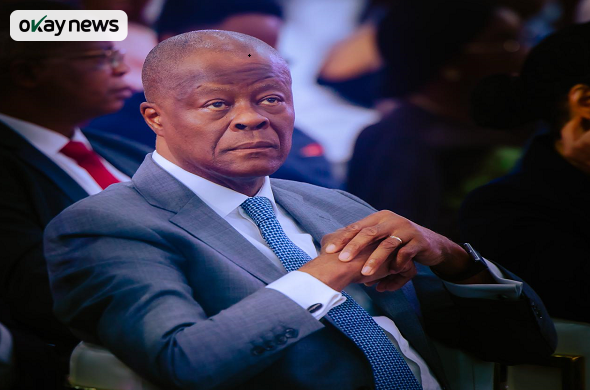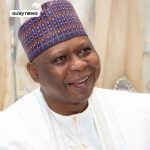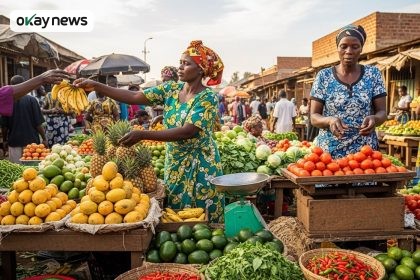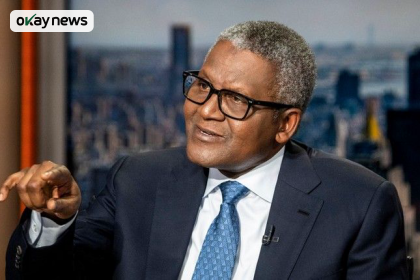Okay News reports that Nigeria’s Minister of Finance and Coordinating Minister of the Economy, Wale Edun, has reacted to the decision of S&P Global Ratings to revise Nigeria’s outlook to Positive from Stable, saying that the government would continue to implement well-coordinated policies aimed at restoring macroeconomic stability. The upgrade marks a significant vote of confidence in Africa’s largest economy.
The Minister, in a statement released on Saturday, said the upgrade, while affirming Nigeria’s long- and short-term ratings at ‘B-/B’, was a strong endorsement of the fiscal, monetary, and structural reforms being rolled out under Nigerian President Bola Tinubu’s administration. S&P Global Ratings is one of the world’s three major credit rating agencies, alongside Moody’s and Fitch Ratings.
“I am delighted to receive the news that S&P Global Ratings has revised Nigeria’s outlook to Positive from Stable while affirming our ‘B-/B’ rating,” he said. “This development is yet another clear signal that the difficult but necessary reforms we are undertaking are gaining traction and earning strong recognition from respected global institutions.”
Edun noted that with Moody’s and Fitch Ratings having earlier upgraded Nigeria’s credit position in the same year, all three major global ratings agencies now align in acknowledging the progress of the reforms. The alignment represents a rare consensus among international rating agencies on Nigeria’s economic trajectory.
“This alignment reflects tremendous confidence in the direction of our fiscal, monetary, and structural reforms, and in the renewed strength and stability of our economy,” he said. Credit ratings influence investor confidence and determine borrowing costs for countries in international capital markets.
The Minister highlighted that S&P’s decision echoed the agency’s recognition of improved growth prospects, strengthening external buffers, and clearer monetary policy outcomes, which are beginning to materialize as the reforms take hold. Nigeria has implemented sweeping economic reforms since President Tinubu assumed office in May 2023.
“These positive signals reinforce our commitment to staying the course,” Edun added. “While we are fully aware that more work lies ahead, the foundations we are building today will support inclusive and sustainable growth for years to come.”
He commended President Tinubu for what he described as “unwavering leadership and political courage” in pushing reforms that had long been delayed and also acknowledged the resilience of Nigerians navigating the transition. The reforms have included painful measures such as fuel subsidy removal and currency devaluation.
“We will continue to implement well-coordinated policies that restore macroeconomic stability, attract investment, and create opportunities for our citizens,” he assured. “The confidence shown by global ratings agencies strengthens our resolve to deliver a stronger, more dynamic, and more prosperous Nigerian economy.”
S&P Global Ratings, in its statement on Friday, revised Nigeria’s outlook to Positive, citing sustained reform efforts and improving macroeconomic indicators. The agency reaffirmed Nigeria’s national scale ratings at ‘ngBBB+/ngA-2’, which are used for domestic comparisons within the country.
“The positive outlook reflects improving external, economic, fiscal, and monetary results,” S&P noted, while flagging lingering concerns such as low GDP per capita, high debt servicing obligations, and structural data gaps. Nigeria’s per capita income remains among the lowest in Africa despite being the continent’s largest economy by GDP.
The upgrade comes on the back of wide-ranging reforms introduced since mid-2023, including exchange rate liberalization, fuel subsidy removal, enhanced revenue mobilization measures, increased oil production and sectoral stabilization, and commissioning of the Dangote Refinery, expected to alter Nigeria’s energy-supply landscape. The 650,000-barrel-per-day Dangote Refinery in Lagos is Africa’s largest oil refinery.
According to S&P, these policy moves are placing Nigeria on a more sustainable fiscal and monetary path. “We think authorities are taking steps to improve the economy’s growth prospects and macroeconomic resilience,” the agency said.
S&P has also raised its growth expectations for Nigeria to an average of 3.7 percent between 2025 and 2028, up from a previous forecast of 3.2 percent, driven by higher oil output and rising private sector confidence. Inflation is projected to decline gradually, reaching 13 percent by 2028 from current levels above 30 percent.
Nigeria’s external position has also improved, with gross foreign reserves estimated at under $44 billion as of October 2025. The country’s removal from the Financial Action Task Force grey list and a more stable naira exchange regime have helped attract diaspora remittances and foreign portfolio inflows into Nigeria’s capital markets.







